Many of us dream of designing a home library. After all, Kindle and audiobooks cannot beat the smell and the texture of real paper books.
However, home libraries often require a lot of space. And many small apartment dwellers have to give up on the idea.
The good news is a Murphy bed provides the space-savings you need to create a home library even when square footage is tight. This guide details how to make a real home library without dedicating a separate room to it, plus a few tips on picking the best Murphy bed.
Step One: Choosing the Right Murphy Bed

The Murphy bed can be a good base for a home library. Why? Because many of them come with storage space that can be used to keep books.
That being said, storage isn’t the only essential aspect. Quality and reliability matter too. Shoppers need to consider the build quality (solid wood is preferable), size , and the bed mechanism.
Here are the main types of Murphy beds that can become an addition to your home library:
- Vertical. This is the standard Murphy bed design. In such models, the mattress is stored vertically against the wall and can be lowered down for sleep. Vertical Murphy beds often look like cabinets when folded. Many of them have storage shelves around the bed section, which makes them an excellent choice for home libraries.
- Horizontal. These Murphy beds are mounted to the wall sideways. When unfolded, one of the longer sides of the mattress is next to the wall. Horizontal Murphy beds aren’t as tall as vertical models and, thus, allow for a bit less shelf space. At the same time, they are better suited for rooms with lower ceilings. This type may also come with bookshelves. However, if that’s not the case, you can add extra shelves over the Murphy bed, as there should be enough of the wall space left.
- Cabinet. Cabinet Murphy beds hide folded mattresses inside. They are super compact and sometimes come with wheels for easier transportation. A cabinet Murphy bed can be a perfect option for those who plan to build their own bookshelves. In this case, readers can add more of those around the Murphy bed, as the cabinet type is rather space-saving.
- Revolving. Also known as rotating, this type hides a vertical bed that rotates 180 degrees instead of folding. On one side, there can be an entertainment center or rows of bookshelves. On the other side, there’s the bed. Thus, this Murphy bed type can potentially offer lots of storage space for books. And the best part is, readers don’t need to take the books away to convert this furniture piece into a bed.
You can see now that it’s super easy to create a home library space using a Murphy bed, as many of them come with storage space and built-in shelves.
Step Two: Adding Bookshelves

The best way to add bookshelves is by making the Murphy bed a base. It’s easier to achieve a more seamless look if you get the same color shelves as the Murphy bed frame/cabinet.
Luckily, there are awesome Murphy beds (like these by Lori Beds) that are made of solid wood and blend seamlessly with most bookshelves. You can build your own or buy shelves online. The first option allows for more versatility with sizes and layouts. The second option, however, is less time-consuming (and doesn’t require much effort).
The best part is, you can pick any style they want. Most Murphy beds can blend with the majority of modern styles (including minimalism), traditional interiors, and elegant setups.
Step Three: Organizing the Books

This is probably the most fun part, as there are plenty of ways to organize the books in a home library. Here are the most popular methods:
- By color, which is ideal for those who want their home library to look neat and stylish.
- By genre, which makes occasional browsing easier if readers prefer to pick books based on their current mood or interests.
- Alphabetically, which is probably the most convenient method, as it makes it easier for readers to find something they need.
- Based on your personal rating, which means placing the books in order from most to least favorite. You can keep their favorite books in close proximity (at eye level), and the least favorite exemplars on higher or lower shelves.
Step Four: Adding Accessories
The most crucial aspect of every home library is lighting. Adding several light sources to the area will allow for a couple of things. First of all, you’ll have enough light to enjoy a good book without straining your eyes. Secondly, you can control the level of lighting and adjust it to your needs (for instance, dim it when preparing for sleep).
A comfortable chair is another excellent addition to a home library. As an alternative, try a recliner or a bean bag chair. Simply pick the most comfortable option.
Is It Okay to Read In Bed?

Here’s some great news for all fellow bookworms out there: there’s nothing wrong with reading in bed. Reading can be very relaxing, making it a perfect pre-bedtime activity that can help you wind down and soothe your mind, says Alex Savy, a certified sleep science coach and the founder of SleepingOcean. "Reading can even reduce stress, which, in its turn, may lead to a more restful, healthier sleep."
Fair warning : reading in bed might not be a good idea in certain scenarios. For instance, reading can disrupt sleep if it involves an electronic source (like a tablet or an ebook). This has to do with the blue light modern screens emit.
Next, it’s also essential to have a reading light. Anything scary, unsettling, tense, or upsetting can spike stress levels and may prevent deep, rejuvenating sleep.
Having a home library is possible in any size space with the addition of a Murphy bed. Models like the Lori Bed are equipped with built-in shelving to keep your favorite page turners at your fingertips.


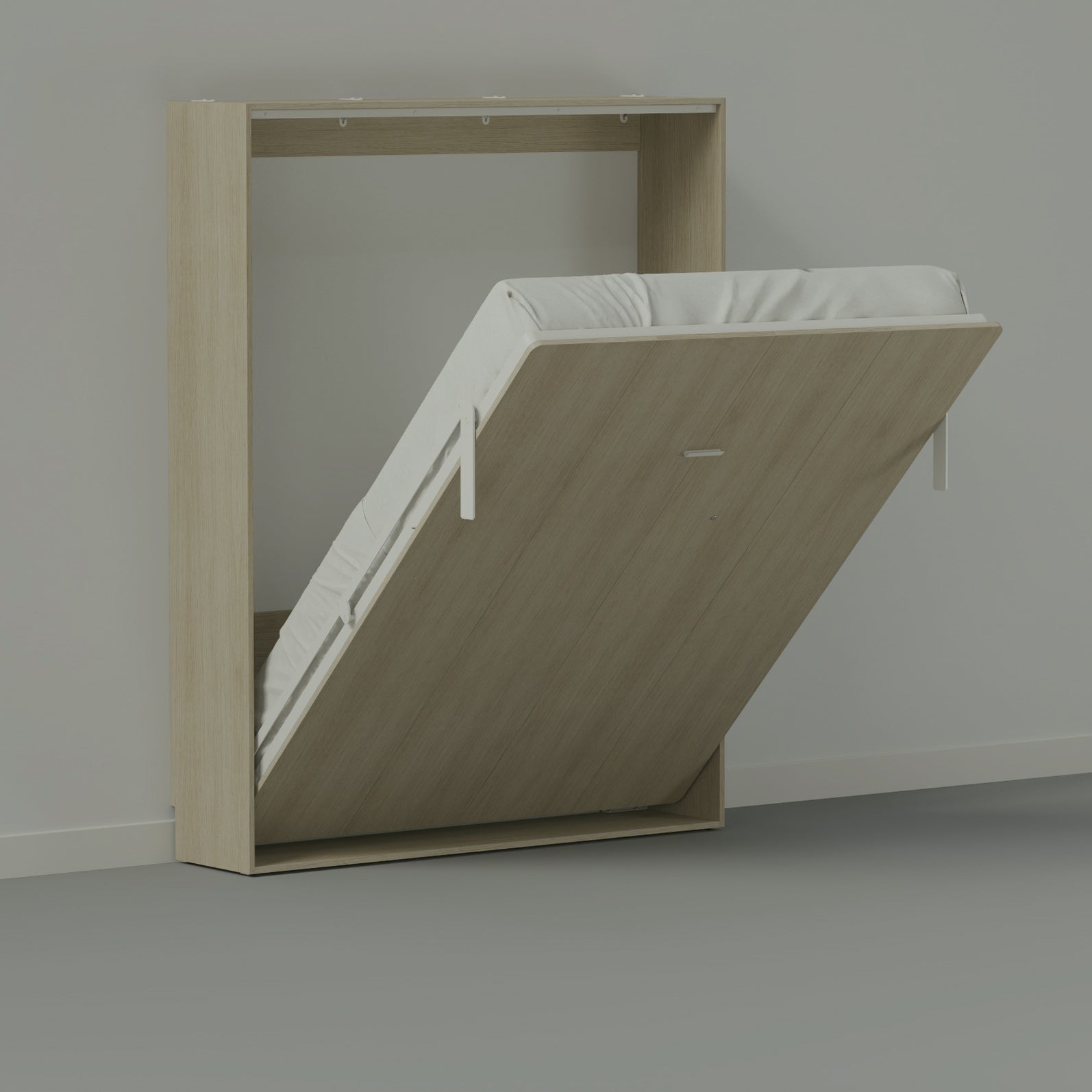
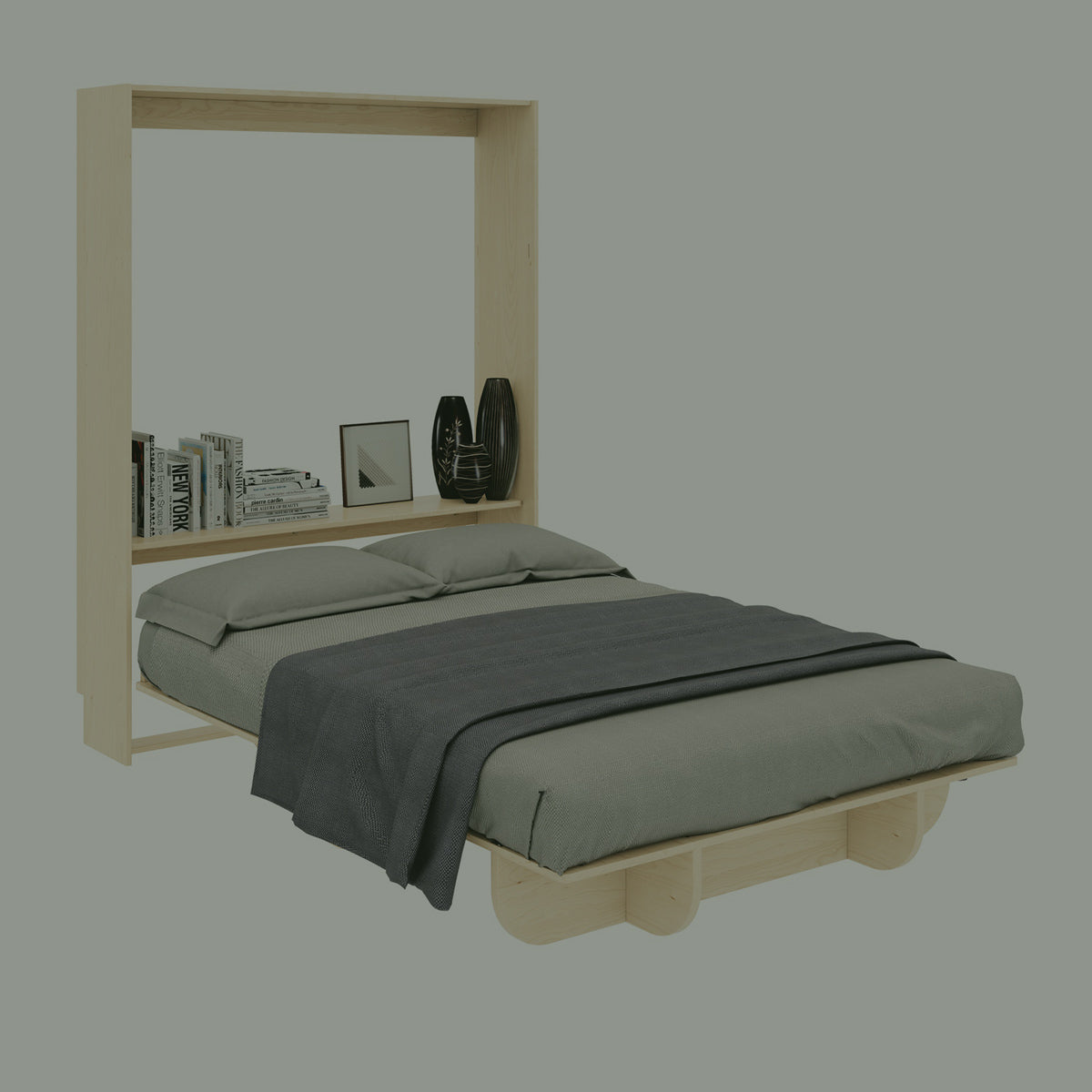
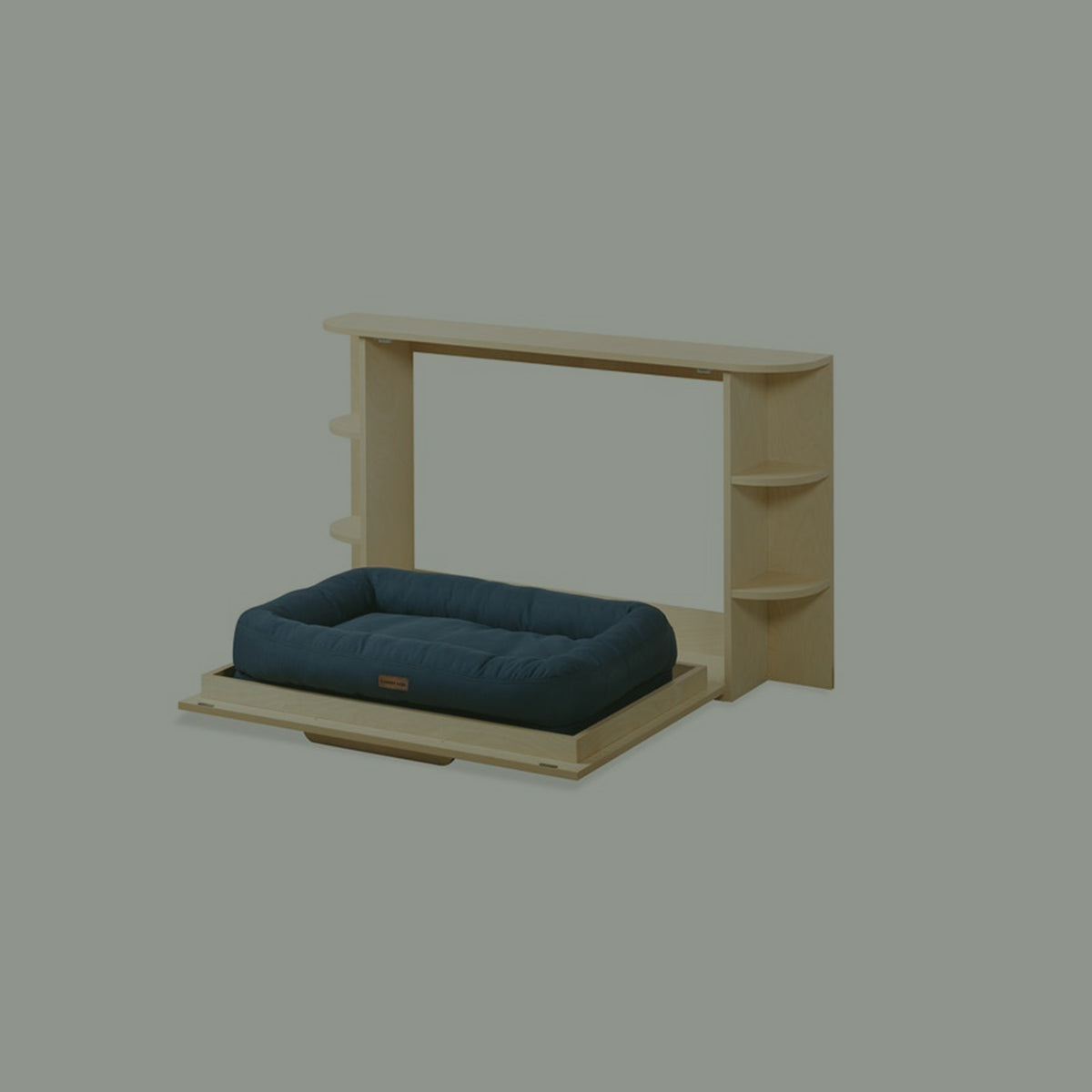
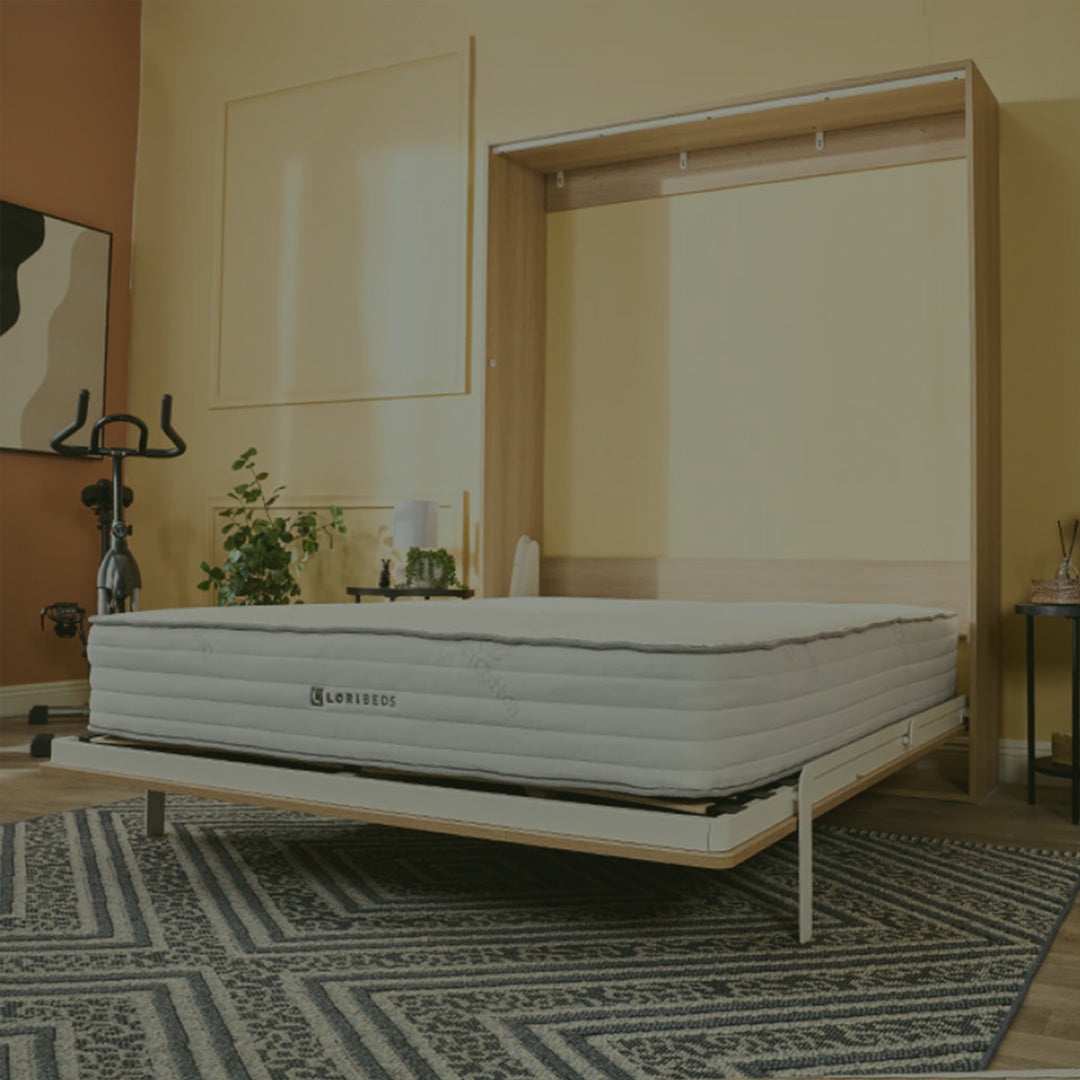
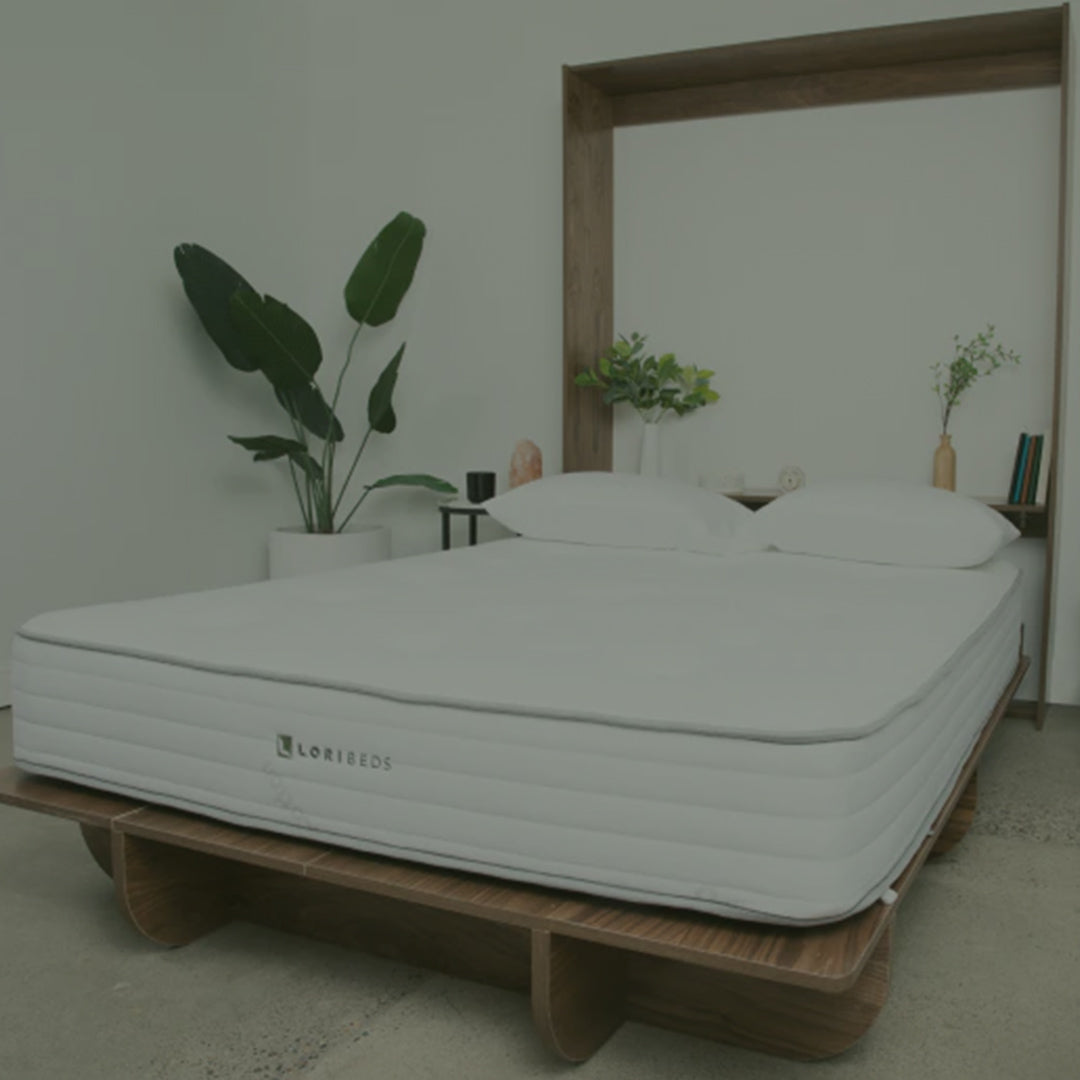
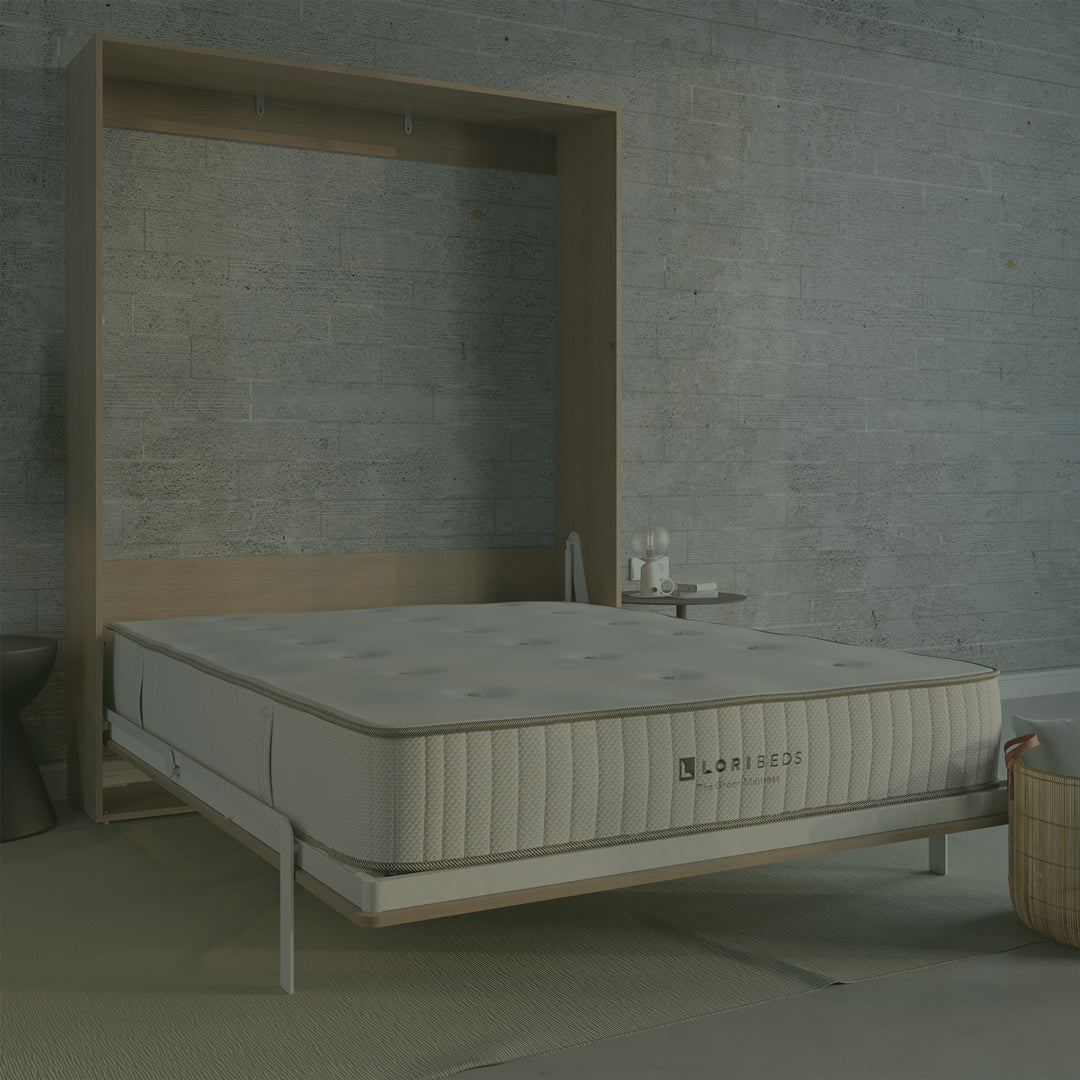
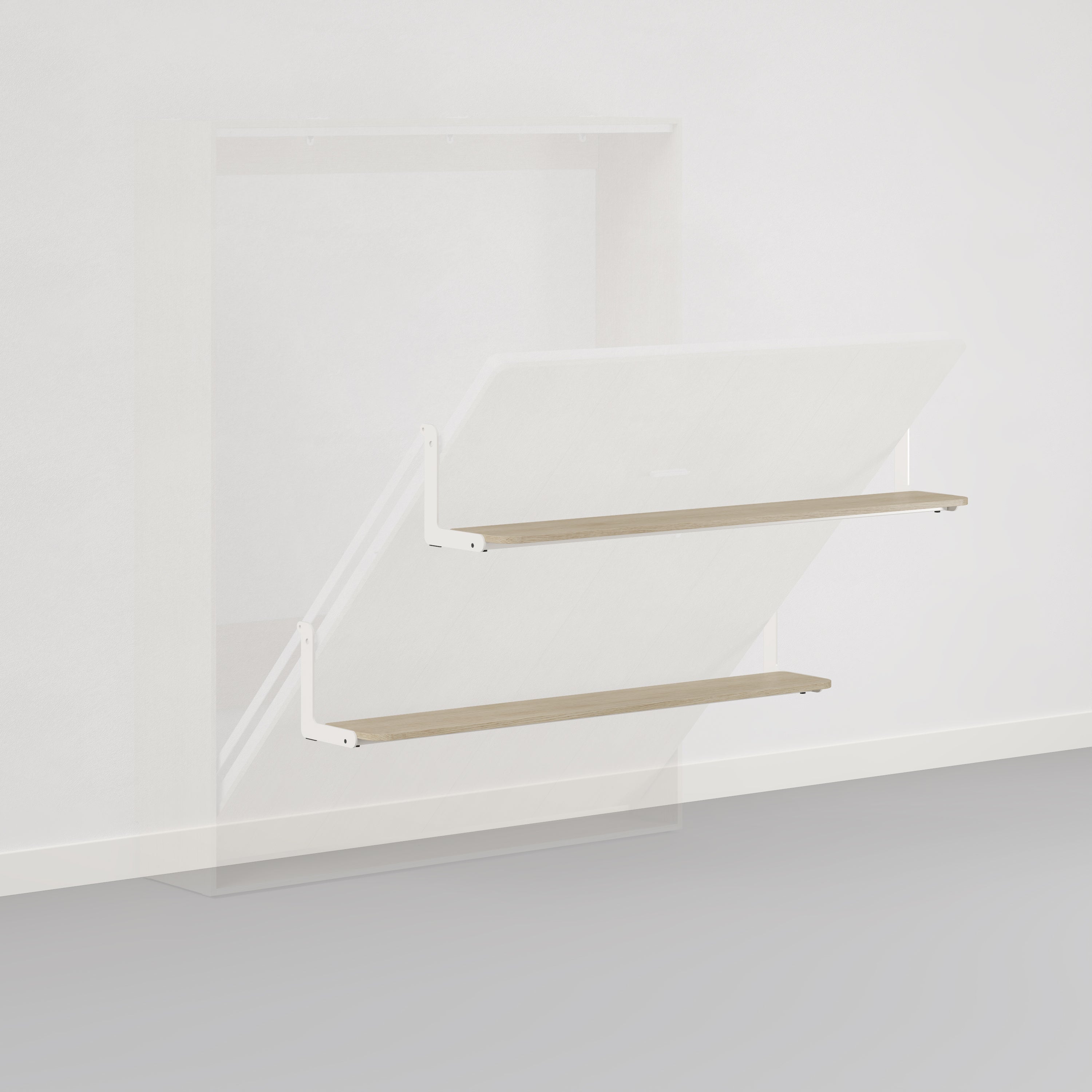
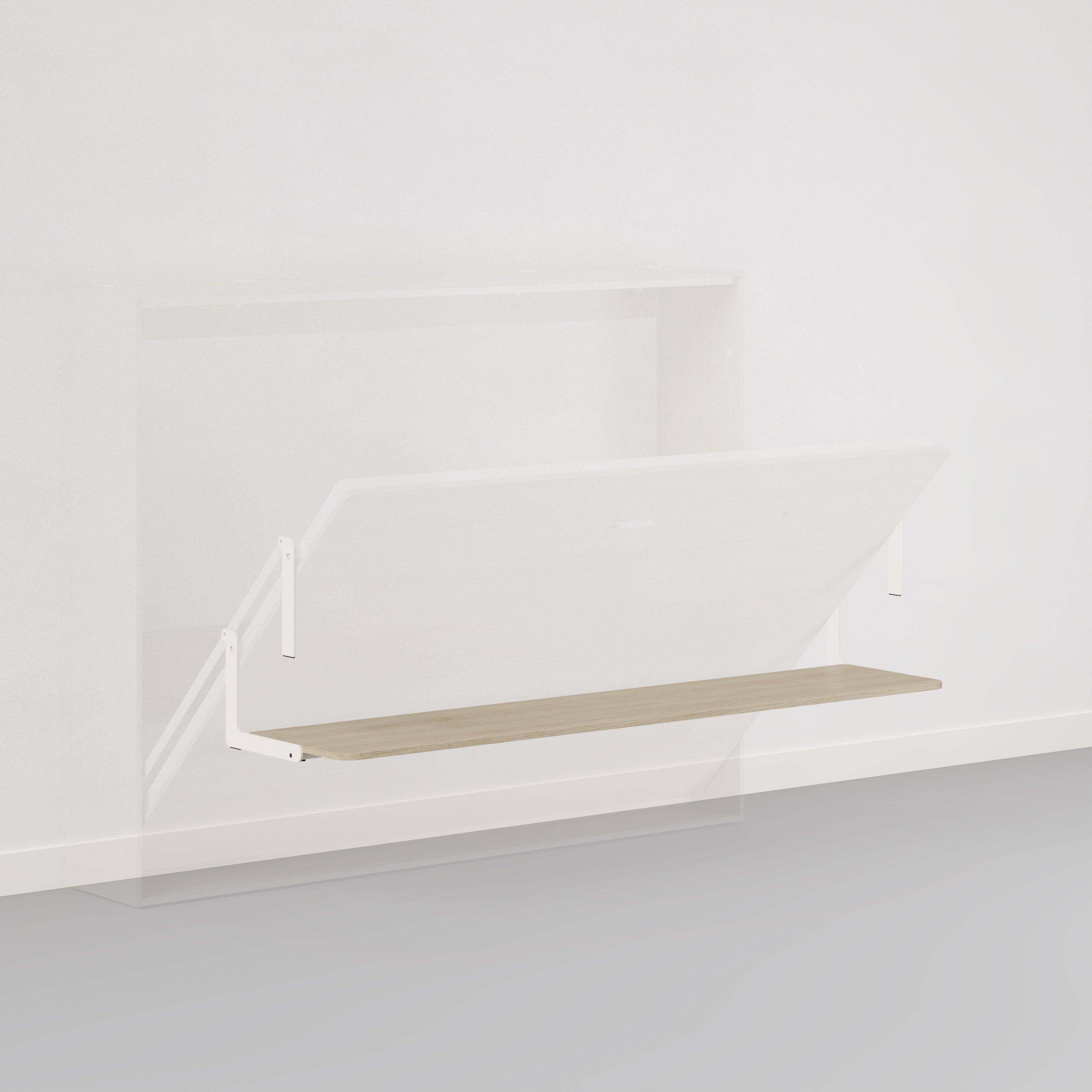
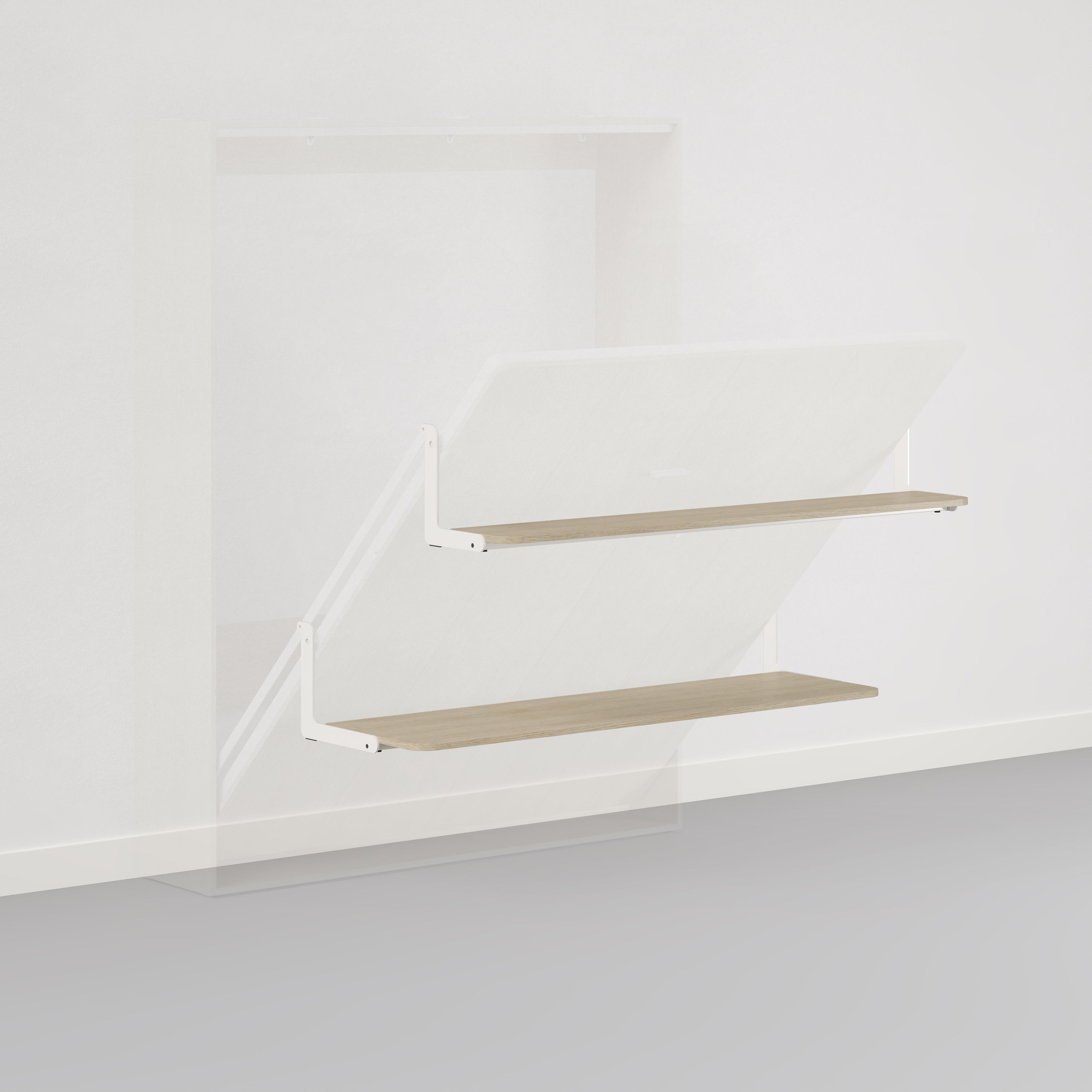
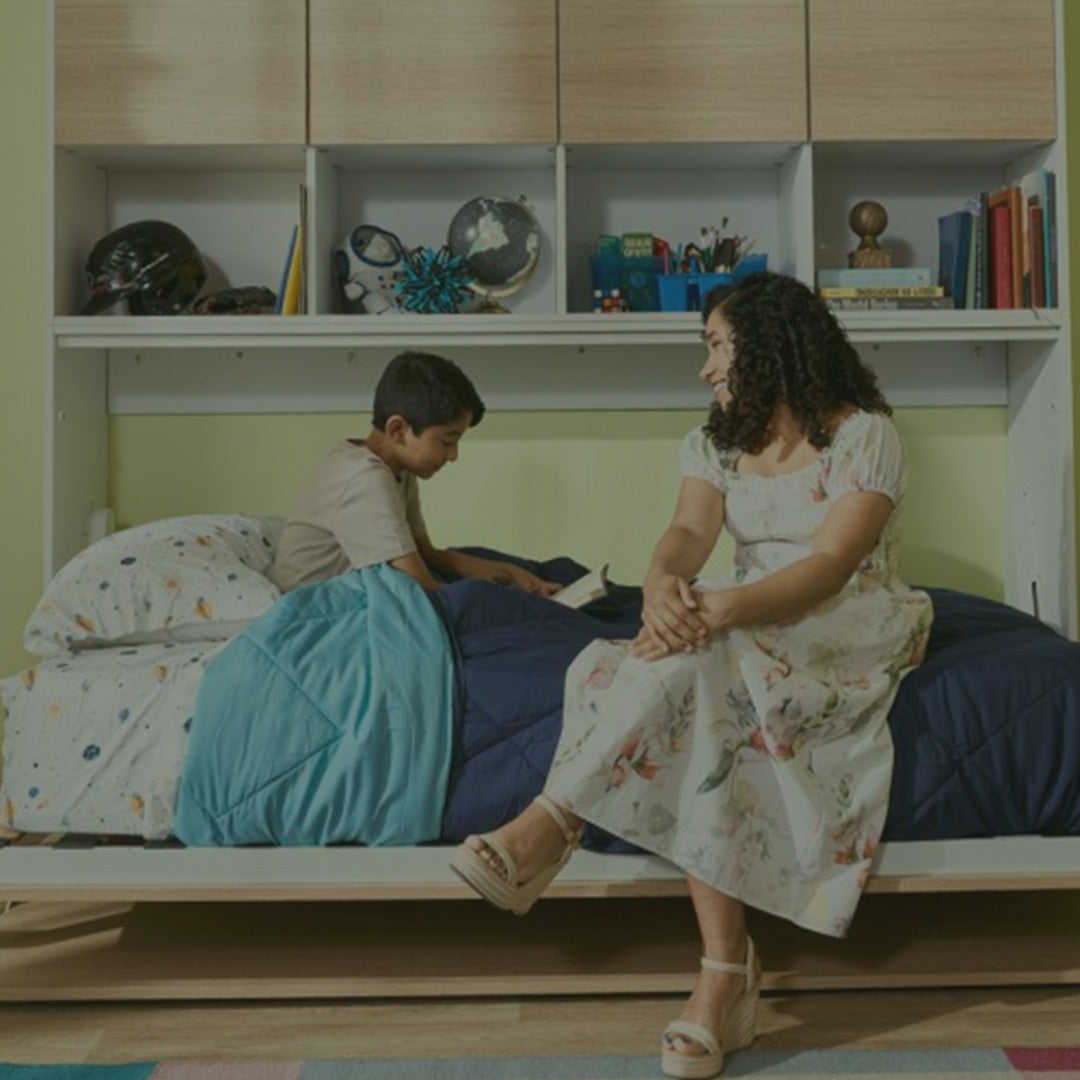
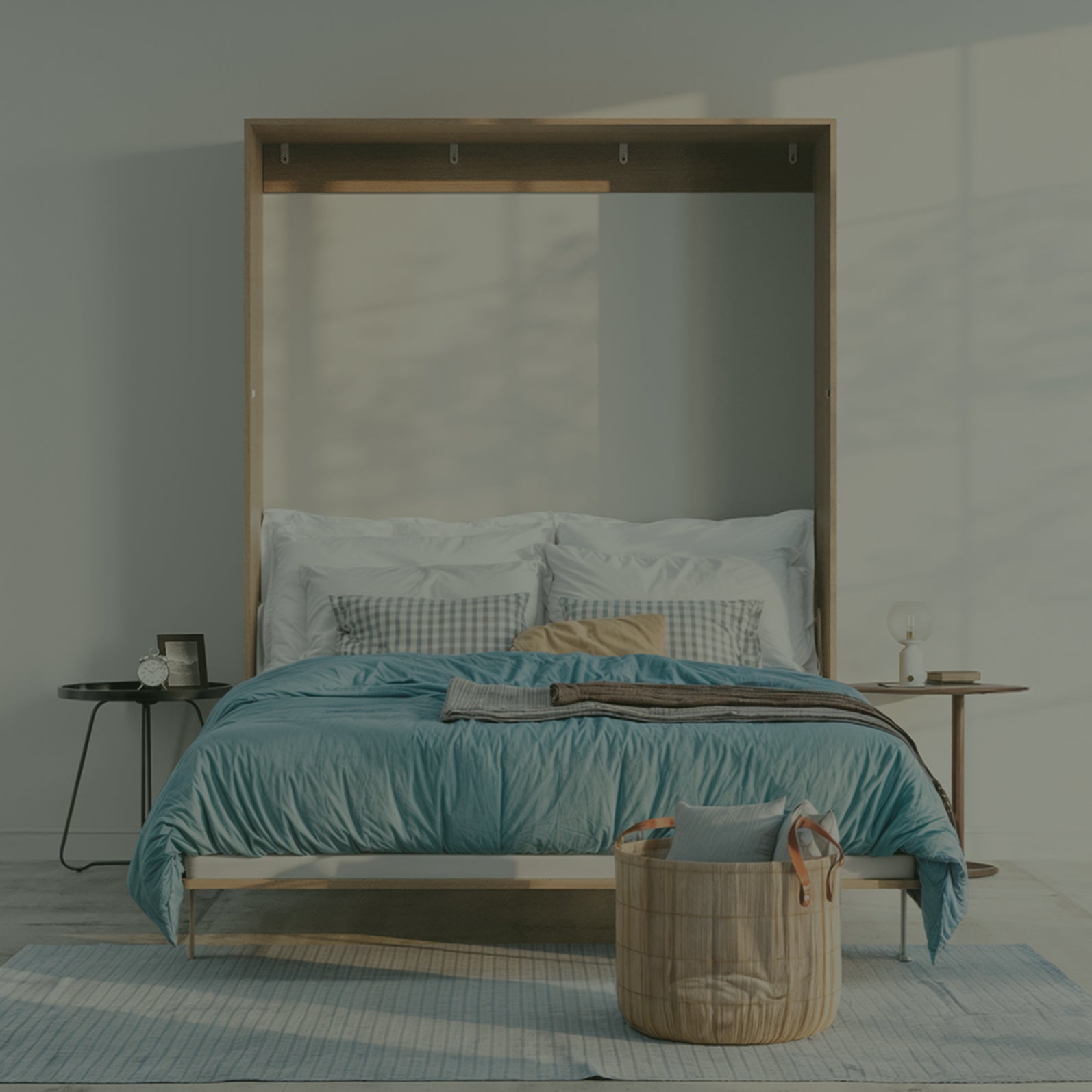



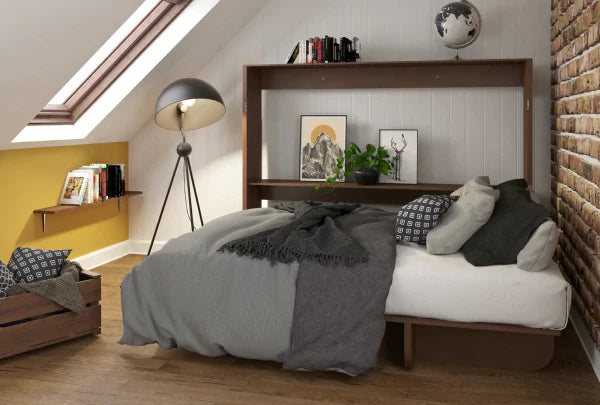
Leave a comment
All comments are moderated before being published.
This site is protected by hCaptcha and the hCaptcha Privacy Policy and Terms of Service apply.